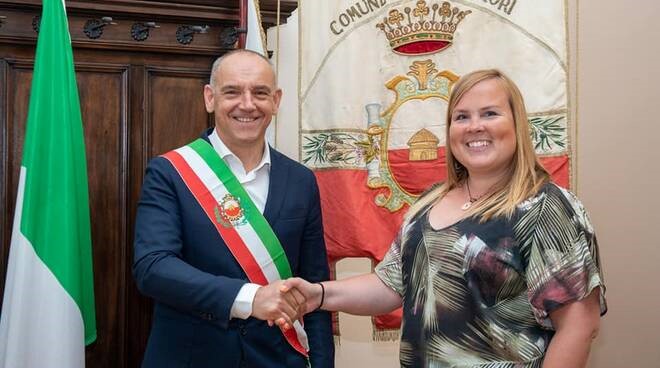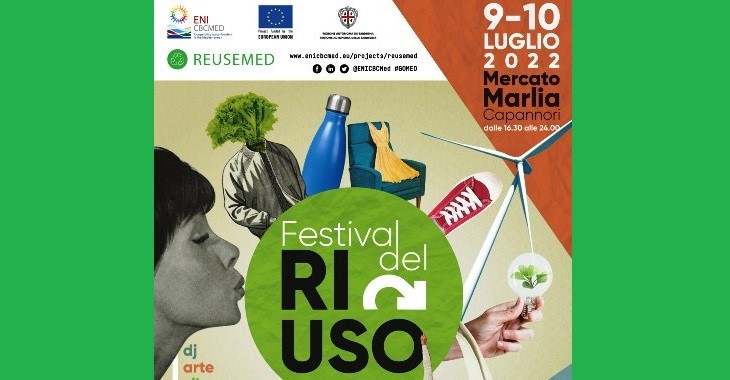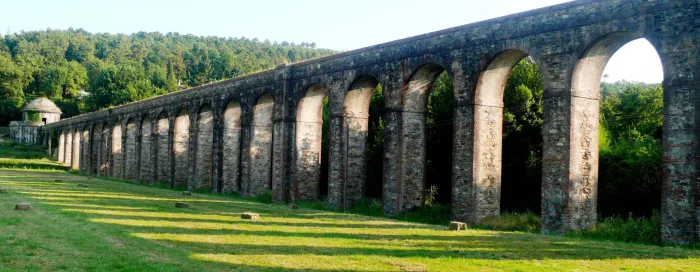This interview is part of our series “#ProgressiveLocalStories”, aiming at raising awareness on the many positive initiatives implemented by progressive cities and regions in Europe in relation to the Sustainable Development Goals. Cities and regions have become laboratories for innovative solutions and, with this series, we want to discover how progressive mayors, councillors and presidents of regions put in place policies to tackle the climate crisis, eradicate social inequalities and build more sustainable communities.
Why is Capannori a progressive town?
The town of Capannori, situated in the Tuscany region, has spent the last 20 years applying a coherent policy strategy for sustainable development. In shaping this approach, visions and ideas were put forward to create a better link between citizens and politics, with the aim of achieving one shared and collective goal: a society driven by sustainable well-being for all.
From our growing understanding of emerging European and global challenges, a progressive vision of Capannori was born that has allowed us to revitalise our city through the concept of sustainable development. Capannori has created its own sustainability dimension through a concept that sees people interact with their local area, and our ambitious political action has emerged from there. The aim is to move increasingly towards a form of socio-ecological development aimed at combating growing inequalities that produce waste and create classes of "second-tier" citizens. Capannori is a progressive municipality because its policy measures are focused on people, local associations and the local area. This has been possible through policy choices for social and environmental sustainability, combined with a number of policies specifically aimed at combating the concept of "waste".
Through the current governance framework embedded in the legislative, administrative, financial and policy process, we have implemented concrete and direct actions to trigger the social and environmental change that we are experiencing and on which we continue to work.
If Capannori is facing the challenges and sharing the values of other progressive European cities, it is thanks to the political forces that are passionately fighting for the rights and well-being of every citizen.

Capannori's mayor and PES Group member Luca Menesini with Kaisa Karjalainen, Coordinator of the Mission Zero Academy.
What specific measures have you taken to make your city sustainable?
Capannori has created a zero-waste policy. This involves concrete measures that can be summarised in ten points.
- Separation at source: waste management is not a technological problem but an organisational one, where the added value is therefore not technology but the involvement of the community called on to work together during a key part of the process to implement environmental sustainability.
- Door-to-door collection: an effective, separate collection system that has allowed us to recycle more than 80% of household waste, and collect material with a very high level of purity.
- Composting: setting up a compost plant in rural areas, thus placing them in close proximity to farmers' working areas.
- Recycling: establishing plant platforms for recycling and recovering materials, with the aim of re-integrating them into the production chain.
- Waste reduction: we have rolled out policies to encourage household composting and the replacement of plastic tableware and bottles with compostable or washable materials in all public buildings and schools, as well as to encourage the use of water from public sources, and to promote local farmers markets, and citizenship education.
- Re-use and repair: through policies to promote the circular economy. We have set up repair centres and centres for reusing furniture, clothing, window fixtures, bathroom fixtures and household appliances. These are repaired, reused and sold. This is possible through social cooperatives which, in addition to their environmental goals, have a social and occupational objective, especially for those most disadvantaged.
- Pay-as-you-throw schemes: introducing systems that charge users on the basis of actual non-recyclable waste generated and collected. This rewards citizens' mindful habits.
- Waste recovery: through a waste recovery and sorting plant.
- Research and redesign centre: closing the cycle and analysing the waste, aimed at the industrial redesign of non-recyclable objects and materials, and providing feedback to businesses.
- Zero waste: we are pursuing the ambitious zero-waste goal, keeping in mind that the zero-waste strategy goes beyond recycling.

How can the European Union contribute to making your town more sustainable?
It should be understood, first of all, that inequalities have multiple effects on the environment. In fact, more equal societies have better socio-economic conditions and are better able to improve their sustainability. Thus we are not all equal in facing the climate crisis. Its effects will vary depending on whether you are rich or poor, older or younger, and will also depend on the city in which you live. We need to realise that environmental progress and social progress must go hand in hand, with one supporting the other. We cannot eradicate our "waste society" and create a fairer society while leaving our planet high and dry.
At the same time, it would be impossible to put an end to the climate crisis while high levels of inequalities still exist. The social and environmental dimensions of sustainable development are both key to fostering a truly sustainable society. This means that we need to figure out how to change our social and even fiscal systems in order to preserve our natural support system for the climate, ecosystems and biodiversity.
This can be achieved in Capannori, as in all other progressive European towns and cities, by establishing shared environmental governance at European level. For this we need appropriate European policies that aim to effectively regulate markets and help correct the imbalance of power on our product, social and environmental capital, and labour markets. Our social protection systems should be structured in a way that promotes an appropriate social and environmental protection system that is universal. We must also strengthen corporate social responsibility and vigorously bolster the social and solidarity-based economy at European level. Policy itself needs to regenerate: this is now an important task for progressive politicians and their parties.
The story of Capannori has always been that of a #changemaker. 15 years ago, the city was the first in Europe to commit to going #zerowaste. Today, it stands as the first Zero Waste Certified City in Italy with an extremely impressive 4 ⭐ out of 5. pic.twitter.com/27SJNEvCJW
— Zero Waste Europe (@zerowasteeurope) July 8, 2022
***
Claudia Berti is a local councillor in Capannori, a town situated in the Tuscany region, Italy. She takes part in the Young Elected Politicians programme of the European Committee of the Regions. She works in close cooperation with the mayor of Capannori, Luca Menesini, who is a member of the PES Group and the Committee's rapporteur on the “EU Strategy for Sustainable Circular Economy and Textiles”.
© Photo credits: Header photo by Mike Finn on flickr, other photos: Town of Capannori
